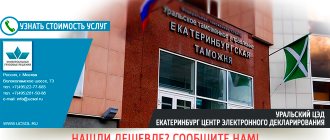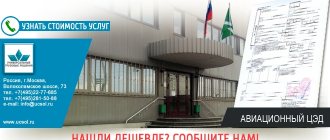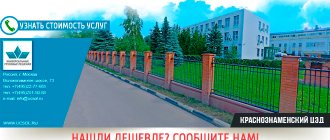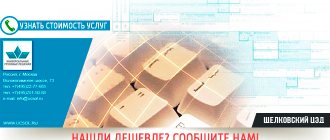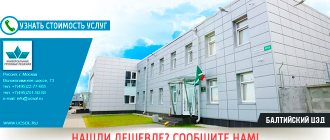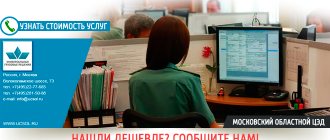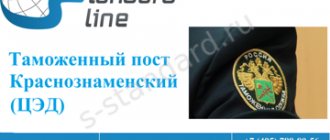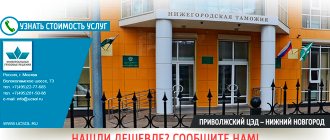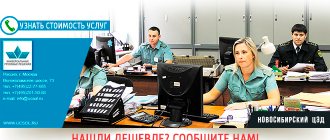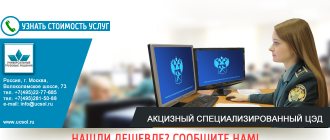HomeCustoms clearanceCustoms clearance places
IMPORTANT: We help to carry out prompt customs clearance of goods at the CED, but our company is not a CED!
One of the main tasks of the Federal Customs Service (FCS) since 2012 has been the introduction of customs technologies and the practice of remote release of goods and the concentration of the main volumes of this technology in Electronic Declaration Centers (EDC). This technology is considered as the basis for the development and improvement of the customs service.
The advantage of registration at the EDC is that when declaring goods, the declarant and the inspector can be at any distance from each other, and the goods can be placed at any border terminals. If customs inspection is necessary, on behalf of the CED inspector who accepted the declaration, the assigned inspections are carried out at the terminals where the goods are located. Interaction between internal and border customs posts also occurs electronically. This technology not only reduces the time required to clear customs operations, but also significantly optimizes the costs of logistics of foreign trade cargo. The introduction of electronic declaration and remote release of goods is considered as one of the main tools of the Concept of customs clearance and customs control in places close to the state border of the Russian Federation.
Electronic declaration centers carry out customs clearance only for Legal Entities and Individual Entrepreneurs!
Documents and information for customs clearance at Electronic Declaration Centers (EDC)
- List of documents for registration of a Legal entity at customs (View)
- List of documents for registration of an individual entrepreneur at customs (View)
- List of documents for customs clearance “Import” (View)
- List of documents for customs clearance “Export” (View)
List and contact information of the CED of the Federal Customs Service of Russia
Currently, there are 16 electronic declaration centers, the work of which is based on the following principles: - EDCs specialized in certain categories of goods (energy, excisable) (Excise and Energy EDCs); - CEDs specialized by mode of transport, which focus on the declaration of goods imported by sea through the ports of the Far Eastern, Southern and Northwestern Federal Districts (Baltic, Novorossiysk, Vladivostok CEDs), as well as through the airports of the Moscow air hub (Aviation CED); -territorial CEDs that process goods of foreign trade participants registered as taxpayers in the corresponding region.
These principles formed the basis of the mechanism for the automatic distribution of declarations for goods, provided for in paragraph 7 of the action plan (“road map”) “Transformation of the business climate”, approved by Decree of the Government of the Russian Federation dated January 17, 2019 No. 20-r.
The mechanism for automatic distribution of declarations for goods has been used by customs authorities since February 1, 2021.
List and contact information of electronic declaration centers of the Federal Customs Service of Russia (as of 11/11/2021)
1. (10005030) Aviation https://sh.customs.gov.ru/about/contacts ☎️+7(495)538-76-33 For document flow issues (APC post) ☎️+7(495)538-76-49 ,,, +7(495)538-76-26, for questions of DT that are being processed ☎️+7(495)538-76-37,, for questions requiring a decision from the management of the customs post Post Address: 141426, Moscow region, Khimki, Sheremetyevskoe highway, building 7
2. (10006060) Energy https://cet.customs.gov.ru/folder/12176 ☎️+7, Post Office Address: 119034, Moscow, st. Prechistenka, 9/9
3. (10009100) Excise specialized https://cat.customs.gov.ru/folder/284381 ☎️+7 Mail Ares: 109240 Moscow, st. Yauzskaya, 8.
4. (10012020) Kaliningrad https://koblt.customs.gov.ru/folder/12051 ☎️+7 Address: Kaliningrad, st. Artilleriyskaya, 26, building 1
5. (10013160) Moscow regional https://mot.customs.gov.ru/folder/12152 ☎️+7, Post Office Address: 115404, Moscow, st. 6th Radialnaya, 1
6. (10131010) Central https://ctu.customs.gov.ru/folder/250730 ☎️+7, Post Address: 107140, Moscow, Komsomolskaya square, 1, building 3
7. (10216170) Baltic https://sztu.customs.gov.ru/folder/144391 ☎️+7(812) 640-04-67 ☎️ FOR CHANGES TO DT AFTER RELEASE Mail Location address: 198035, St. Petersburg , st. Dvinskaya, 16, building 1, lit. A Address for sending correspondence: 198184, St. Petersburg, Kanonersky Island, 32A
8. (10228010) North-Western https://sztu.customs.gov.ru/folder/251308 ☎️+7 Mail Address: 191167, St. Petersburg, Ligovka-Yamskaya municipal district, Kremenchugskaya st., 21, building . 2, p.1
9. (10317120) Novorossiysk https://yutu.customs.gov.ru/folder/166384 ☎️+7 Reception phone: 8 (8617) 791-445 Mail Address: 353915, Krasnodar region Novorossiysk Myskhakskoe highway, no. 61
10. (10323010) Southern https://yutu.customs.gov.ru/folder/241084 ☎️+7 Mail Address: 344000, Rostov region, Rostov-on-Don, per. Energetikov, 11
11. (10418010) Privolzhsky https://ptu.customs.gov.ru/folder/165416 ☎️+7, Post Office Address: 603093, Nizhny Novgorod, st. Rodionova, 65
12. (10511010) Ural https://utu.customs.gov.ru/folder/163764 ☎️+7, Post Address: 620014, Ekaterinburg, Moskovskaya st., 11
13. (10620010) Siberian https://stu.customs.gov.ru/about/struktura-stu/informacziya-o-tamozhennom-organe/tamozhennye-posty ☎️+7, Post Office customs post address: 660010, Krasnoyarsk region, Krasnoyarsk, ave. them. newspapers Krasnoyarsky Rabochiy, 150A
14. (10702070) Vladivostok https://dvtu.customs.gov.ru/folder/130210 ☎️+7, Post Office Location: Vladivostok, st. Strelnikova, 14 Postal address: Vladivostok, st. Posyetskaya, 21-a., 690090
15. (10720010) Far Eastern https://dvtu.customs.gov.ru/folder/237828 ☎️+7 Mail, [email protected] Address: 692760, Primorsky Territory, Artem, st. Frunze 41
16. (10805010) North Caucasian https://sktu.customs.gov.ru/folder/153323 ☎️+7, Post Address: 357205, Stavropol Territory, Mineralovodsky district, city. Mineralnye Vody, st. Sovetskaya, 150
And now we’ll tell you what trends in customs declaration for participants in foreign trade activities all this brings, in our opinion:
1. working in the style of “it’s always been done this way” without understanding the regulatory rules will no longer work, established practices of working with specific inspectors and posts will disappear, for example:
— application of method 1 for free deliveries by indicating the price for customs purposes and attaching a proforma invoice;
— indication of the weight of sealed/aseptic containers based on the conclusions of the supplier or third-party expert, in order not to take its weight into account in the net weight of the cargo.
2. The response time of the EDC will be reduced and it will be possible to work around the clock, but at the same time the degree of indifference of inspectors will increase and the level of their expertise in non-standard cases will decrease - customs will have to sacrifice something to automate the declaration process. Remember the call center of a bank or mobile operator... Complex cases will be considered by the most highly competent employees, but there are few of them compared to the flow of declarations, so consideration will be slow or occur only in the event of an obvious conflict with a foreign trade participant.
3. simply calling and finding out what the problem is will not work, and appealing the decisions and actions of the EDC to the court will become more problematic, since the appeal is made at the place where the decision was made, and if the EDCs are not even located by region, but only by region, then a judicial appeal for participants in foreign trade activities from other cities in the region than the CED will become very difficult and not a prompt method of influencing the customs authority. The most striking example is the adoption by the court of interim measures to prevent customs from writing off additional charges on claims. Of course, the arbitration court system is also introducing electronic communication technologies, but in many cases paper documents and personal presence still matter.
4. Increasing the number of system elements due to the separation of customs offices of actual control, OKEPs and EDCs will inevitably lead to errors in communication between them, at least in the first year of work. Already now, foreign trade participants declaring to the Volga electronic customs office are complaining that the release time is not 1, as promised, but 4-5 days. Change doesn't always go smoothly.
5. Simplification of primary control will entail the need to strengthen secondary control in the next 3 years after declaration, and it will become the “bread and butter” for customs offices of actual control on the ground and increasingly effective given the trend towards integration of information systems of the Federal Tax Service and the Federal Customs Service of Russia.
6. The transition of customs to cloud technologies, centralization of functionality and reduction of overhead costs for maintaining the apparatus on site will require similar integration measures from declarants - consolidation and outsourcing of non-production, but requiring high competence functions related to foreign trade activities (such as issues of classification and legal support) .

